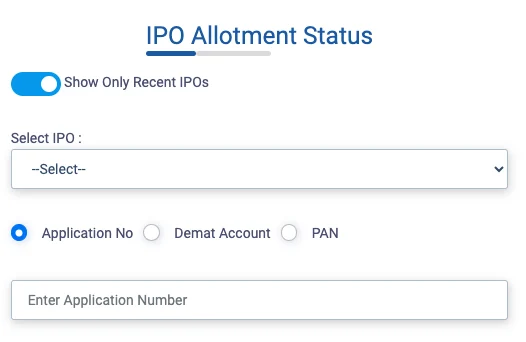Following the US indictment of Adani Group officials, investors both domestically and internationally are sure to have a number of urgent issues. They will be interested in learning how this legal dispute may impact the group’s standing internationally, investor trust, and whether it would discourage foreign investment in India’s developing economy. The governance issues connected to Indian conglomerates and SEBI’s role in rebuilding trust will also be closely examined by investors. Furthermore, Corporate Advisor and Policy Researcher Srinath Sridharan warns that there are significant worries about how this will affect Adani’s capacity to refinance its debt.
A US court’s indictments of Adani Group officials have rekindled the company’s reputational problem, which was already exacerbated by earlier claims made by Hindenburg Research. The accusations may raise questions about Adani’s business procedures and, at least temporarily, undermine investor trust. Even though the business disputes any wrongdoing, the upcoming legal issues could make efforts to rebuild confidence more difficult.
The main emphasis at this point is on how investors, business entities, and regulatory agencies manage the difficulties of market confidence, governance, and legal scrutiny. How these stakeholders react to reputational issues and the implications for the broader business and regulatory ecosystem are the true concerns at hand.
Adani – Governance Concerns for Indian Businesses
Important corporate governance concerns are brought to light by this circumstance, especially for Indian companies. Even though the accusations have not yet been adjudicated, international investors are beginning to doubt the strength of governance in one of the fastest-growing economies in the world. Perceived or confirmed governance shortcomings run the risk of damaging India’s reputation as a global capital hub. The stakes are high because such instances could discourage foreign investment, which is crucial for developing nations like India.
But it’s important to avoid generalising about all Indian companies. Numerous Indian businesses uphold strict governance guidelines and strike a balance between accountability and profitability. Internationally renowned companies in the manufacturing, pharmaceutical, and IT sectors attest to India’s capacity to produce top-tier businesses.
Market & Stakeholder Pressure
Due to their own share volatility and the possibility of being questioned in-depth by their investors, the Adani Group’s lenders are probably going to experience immediate pressure. New lending to the group is probably going to be put on hold until further information becomes available. In addition to managing reputational risk, financial institutions must make sure they are in line with changing standards for transparency and governance.
Due to investor apprehension, the indictment is anticipated to result in notable volatility in the group’s bonds. This is in line with more general market patterns in which court probes cause brief shocks, especially for businesses that have significant global exposure. Adani’s liquidity and short-term debt refinance capabilities may be threatened by the financial strain and possible credit rating downgrades.
Air Purifier for Home – Bedroom, Living Room at Affordable Prices
The equities of the Adani Group and its major partners, both upstream and downstream, are probably going to see turbulence. As investors respond to the uncertainty, mutual funds that are exposed to these stocks may suffer redemptions. These actions are typical when investor sentiment shifts due to market uncertainty and reputational harm.
Miss Universe 2024 – Denmark’s Victoria Kjaer Theilvig Wins
What will SEBI do?
Concerns about governance will grow, especially after months of investigation into the claims made by Hindenburg Research. The group’s reputation and capacity to operate in global marketplaces will be permanently impacted by how it responds to these persistent problems. Although Adani was earlier exonerated of Hindenburg’s accusations by SEBI and the Supreme Court, the latest US charge introduces another level of difficulty. SEBI’s answer will be critical in assessing the company’s trustworthiness as investors may wonder why it failed to make the comprehensive disclosures mandated by law. The regulator’s reputation both at home and abroad may suffer greatly as a result of its actions—or lack thereof.
Iranian Supreme Leader Ali Khamenei – Who’s Next ?
Given its prominence and its effects on India’s reputation abroad, the political climate in India is anticipated to take advantage of this problem. Such occurrences will unavoidably spark larger discussions on business regulation and economic policy in a politically sensitive setting, further complicating an already divisive situation.
Nita Ambani’s Viral Popcorn Bag and its Price
This instance demonstrates the conflict between the sustainability of ethical capitalism and the quick growth of businesses. Businesses must view governance as a basic value necessary for long-term resilience rather than as a compliance burden, particularly in the global context. India may use this as a chance to fortify its regulatory structures and guarantee that no business, no matter how big or little, operates above the law.
How to Identify Fake Cooking Oil?
India’s entrepreneurial drive and demographic dividend are still its strongest points, but preserving investor trust will necessitate a shared commitment to improved governance standards. India is being watched by the world as a hopeful partner, not with suspicion. In response, Indian companies need to prioritise honesty in their expansion plans.
The True Meaning of 1 Billion: Why Health Is the Ultimate Wealth
The project management and execution skills of India’s conglomerates are even acknowledged by those who criticise crony capitalism in that country. Few industrialists have the size, know-how, and organisational capacity to successfully seize expansion prospects. These corporations’ success on the international scene can be attributed to their continuous demonstration of their ability to mobilise resources and carry out intricate undertakings in difficult situations.
Donald Trump picks Elon Musk, Vivek Ramaswamy to lead DOGE under ‘Save America’ Movement
Global Lessons & Geopolitics
Even while many think that corruption is still pervasive in India’s system, it’s crucial to acknowledge that the business culture of the nation is changing. India has seen a change in corporate governance and transparency in recent years. The awareness that corporations and, by extension, business owners, have much more at stake—both in terms of wealth and reputation—is what is driving this shift, not idealism. This “cleaning of the stables” is a normal and essential process as India expands.
Many countries around the world have experienced comparable changes in governance. South Korea changed its chaebols in the 1980s, making them more open and competitive. Similarly, as it modernised its economy in the 1990s, China pushed for increased corporate accountability. These countries—like India—realized that enhancing governance was crucial to their long-term prosperity and international recognition.
Also Read:

Shubhangi Gupta is a distinguished content writer and the visionary founder of The Unpleasant – Acha Nahi Sabse Sacha. With a Master’s degree in Commerce from University of Lucknow, Shubhangi has seamlessly blended her academic background with her passion for reading and writing, embarking on a successful career as a content writer since 2019.





